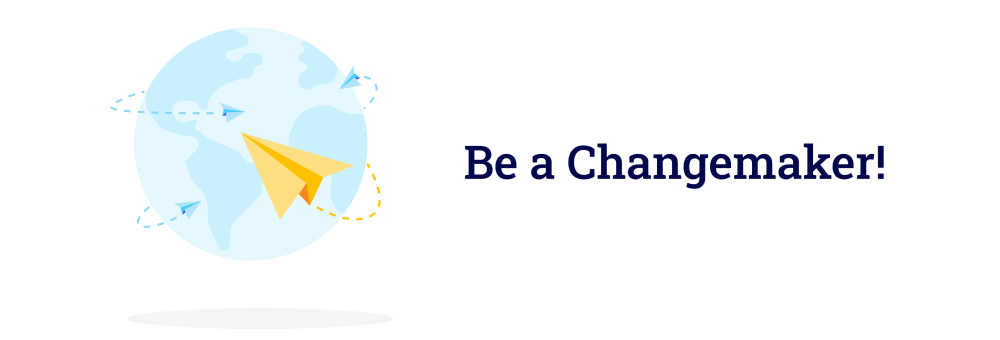Part 3: The iManage view
Legal leaders answer the call for change in 2024
Change isn’t optional
This commentary follows our Legal Leaders Answer the Call for Change: 2024 executive summary and analysis of Ari Kaplan Advisors' The Changemakers Report. If you inadvertently came to this page without reading our summary and analysis, we strongly encourage you to check them out first.
So. We’ve already written a summary and an analysis. What more can we offer you from this report? Why, our takeaways, of course! And boy, do we have some takeaways.
Let’s just start with the title — The Changemakers Report. We love it! Because all you leaders out there (you know who you are), that’s you. And because if the past four years have shown the legal industry anything, it’s that change isn’t optional. The only choice is in how you manage it. And — as we’re sure you know — the best way to manage change is to stay firmly ahead of it. If you don’t, you’re a hamster on a wheel, and the best you can hope for is to keep that wheel circling around and around; which, by the way, is what water does when it circles the drain, am I right? Good. Then we’re agreed that we all want to stay ahead of change. How do we do that? You already know.

Change is challenging. You are replacing something that is working with something unknown.
People know it is going to be different, and it may affect their work lives in a big way. They only have your word that change is going to be better. They may love it, or they may hate it, and people don’t welcome that kind of uncertainty.
Let’s talk about how to deal with that. Here are a few pointers from our 9 steps to leading change in law firms.
Be curious. Listen.
Find people who are willing to talk about what needs to change and why. People are more collaborative when you listen and show your desire to make their work easier.
Foster leadership in others.
Providing too much guidance too soon can undermine the goal of fostering individual leadership on your team. That wealth of experience will pay dividends.
Set aside the fear of failure.
As counterintuitive as it may sound, sometimes failure is a necessary step on the path to success. Maintain a healthy approach to failure.
Be a good facilitator.
Create an environment where junior staff feel comfortable contributing to the conversation without the worry of being judged.
Welcome new ideas.
No matter how similar a project, assignment, or initiative feels to something you’ve done before, a new approach might produce better outcomes.
Build trust.
Support people throughout a change and incorporate their feedback to ensure they feel invested, or you risk them continuing to operate per the status quo.
Keep the lines of communication open.
Gather ideas for improving a process or technology. Listen to their concerns and explore their challenges. Find outcomes you can both support.
Remain encouraging and supportive.
When people feel they have a role in creating your change strategy they have a compelling reason to engage. Encourage mentoring.
Let’s get started
In Legal leaders answer the call for change in 2024: Key themes, we look at how leaders at midsize firms approach technology, AI, collective knowledge, challenges, and growth. Now we’ll talk about these results in terms of solutions. And we’ll mix things up a bit and start with challenges.
Challenges Opportunities
Talent, culture, and technology take the main stage for many of the study respondents.
The iManage view: Value people, cherish diversity, and optimize technology
Strategies for making better use of knowledge
According to our research, the top three knowledge work strategies are:

Evaluating and optimizing existing technologies

Reorganizing the company structure to align with the knowledge work goals

Training existing employees to gain the required skills
A solution that enables organizations to manage content — from governance and compliance to proper disposition — underpins and supports the adoption of effective AI-enabled technologies. And supported by a culture that promotes and rewards change, optimizing knowledge work can help bring about the business growth and outcomes knowledge-based organizations seek.
Create a new blueprint for growth
You can shift outdated mindsets and unify your teams to treat problems, not just symptoms, and build a more modern, more profitable legal ecosystem.
The Changemakers Report touts “How midsize law firms achieve growth through adaptation.”
All of the observations we’ve made here are examples of how midsize firms are doing exactly that. You are overcoming obstacles with pluck, preparation, and persistence. You are taking on the promise and the perils of a rapidly changing legal technology landscape and prevailing over it. You are coming to terms with the need to preserve, democratize, and build the business on your knowledge.
You represent a new era for law firms — an era of change. You are Changemakers.
“We are 100% full steam ahead on change, and I am a change agent, which is why the firm hired me six months ago,” said one respondent to the survey.
iManage embraces the future of work with the same energy, excitement, and enthusiasm that you do. We’ve been a force for change in the industry, too, for nearly 30 years, and we aren’t slowing down anytime soon. What’s more, we look forward to partnering with your firm to help you reach those goals, and we’ll meet you wherever you are on the continuum. Explore the site, book a demo, look us up on Youtube. We can’t wait to meet you!




Making Knowledge Work
Request a demo
Ready to see how iManage can make a difference to your organization?
Book a Demo